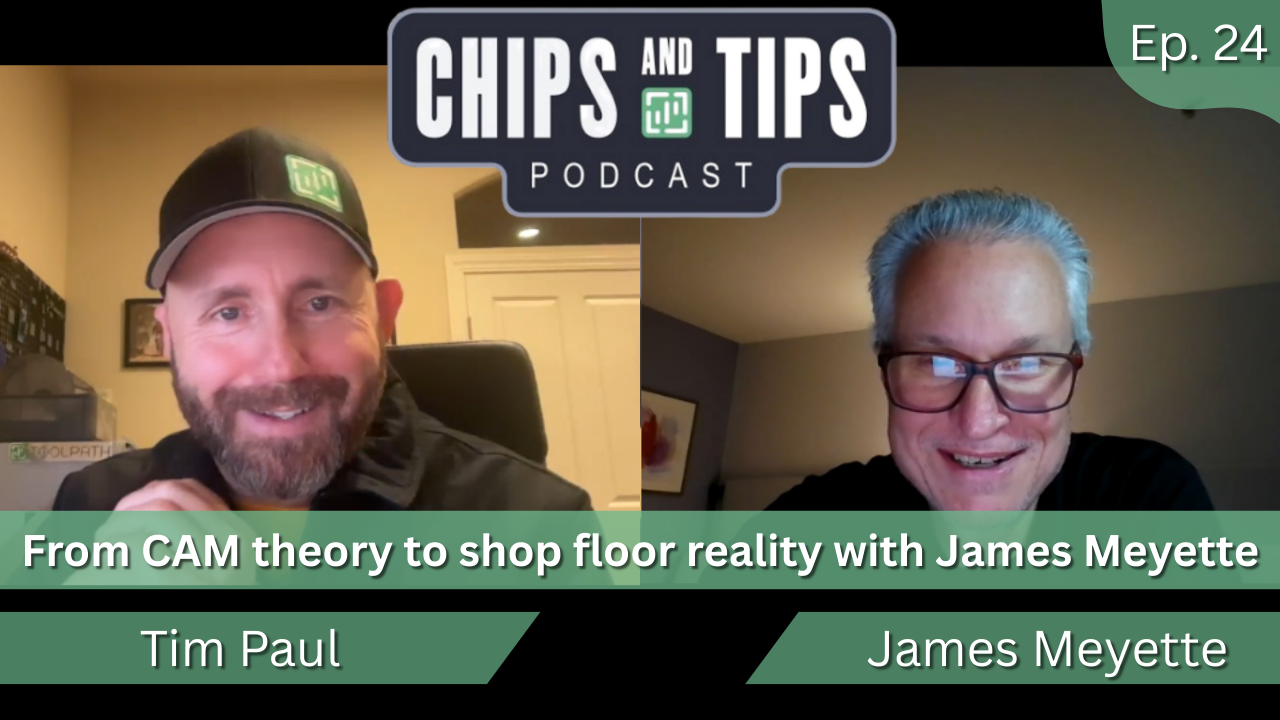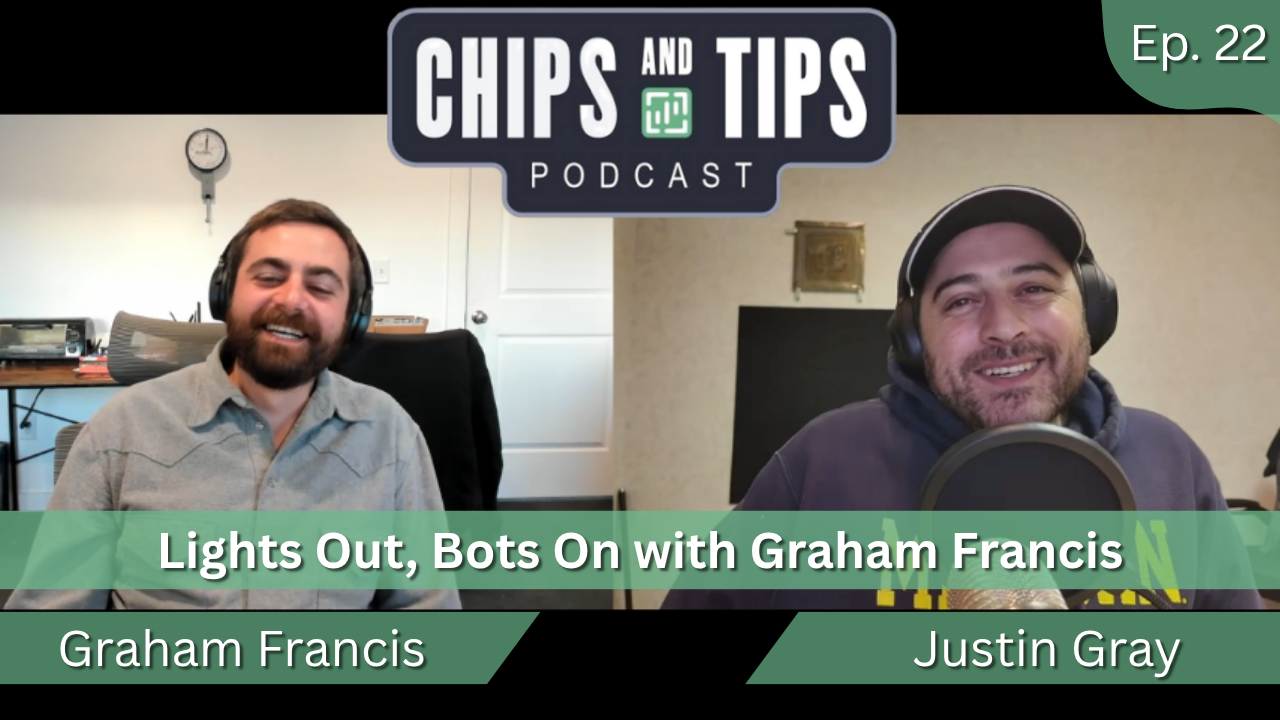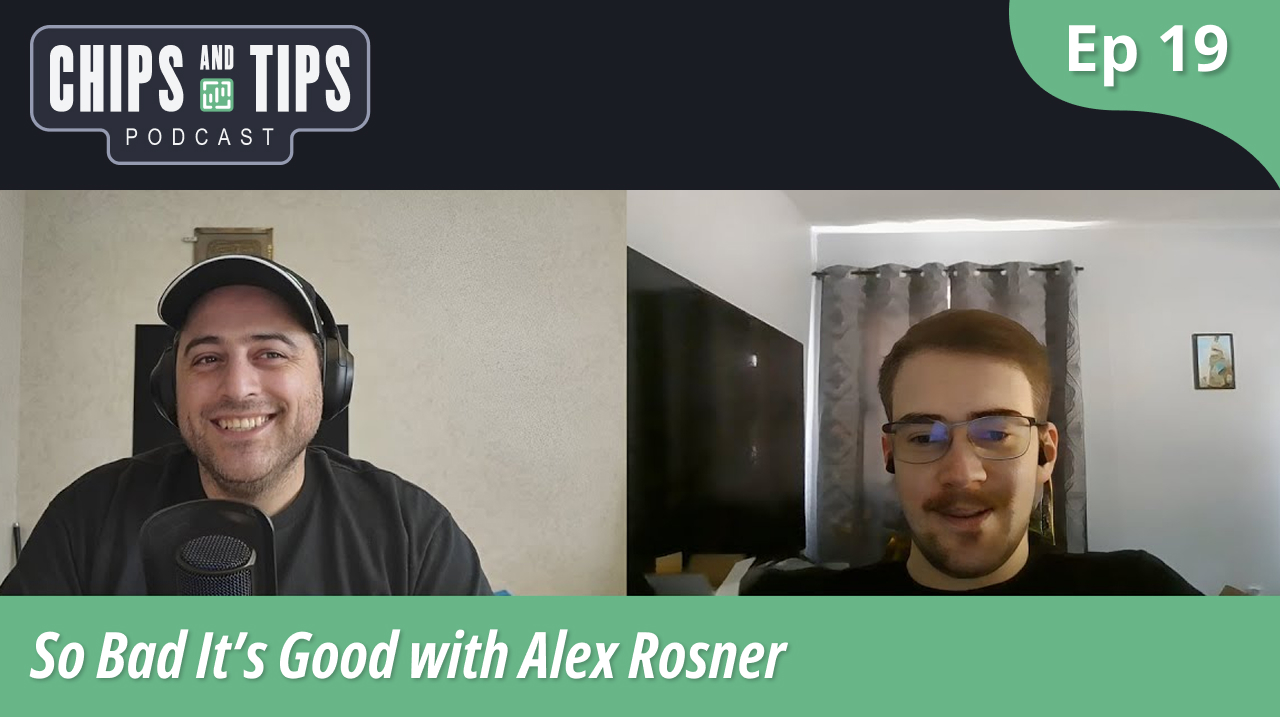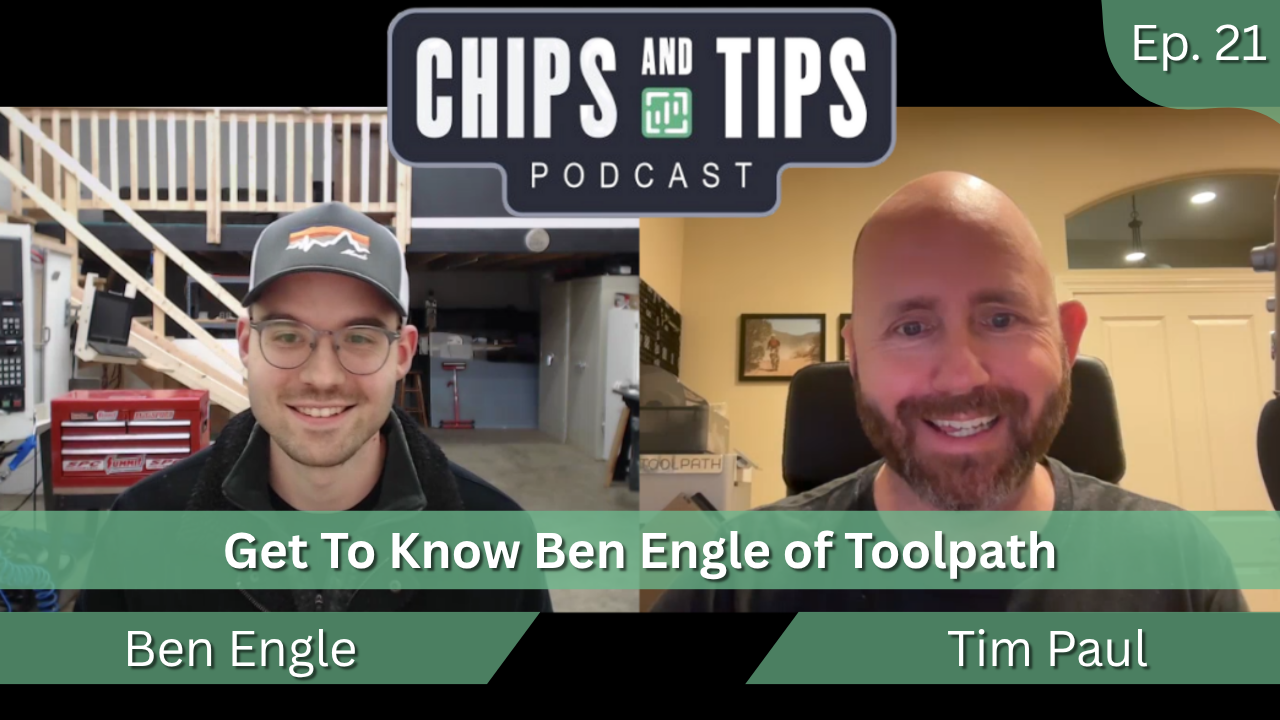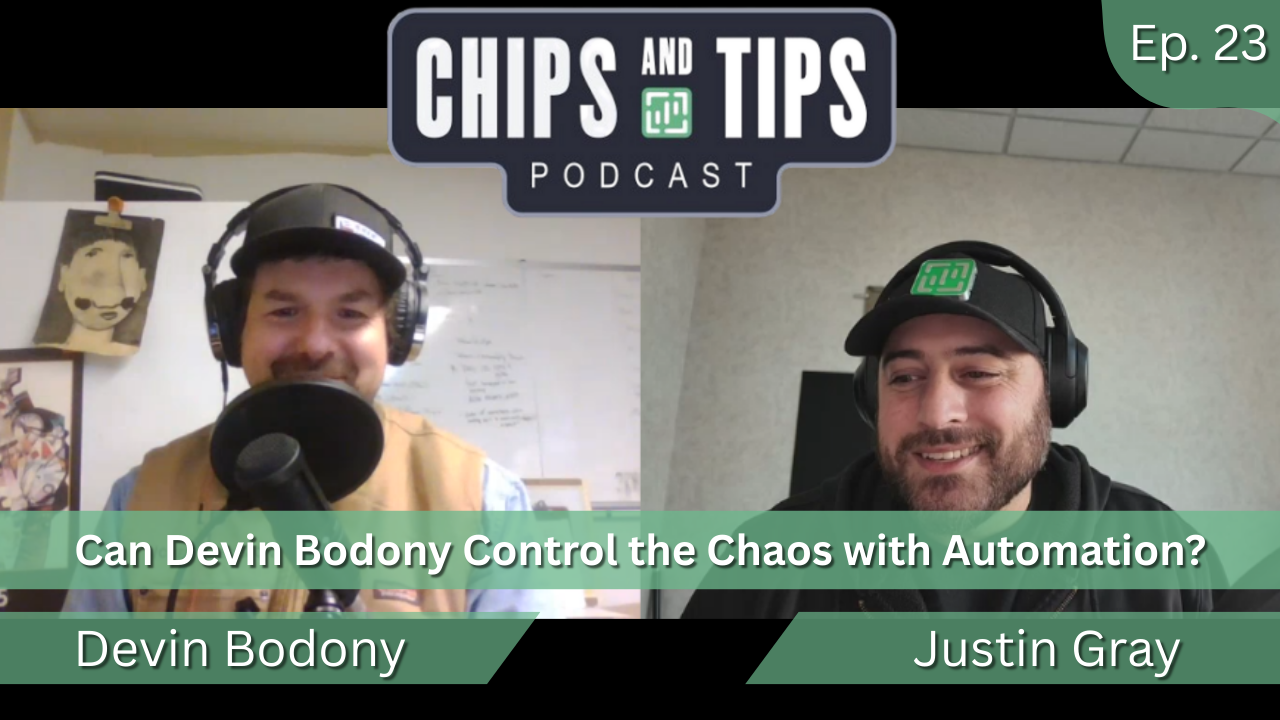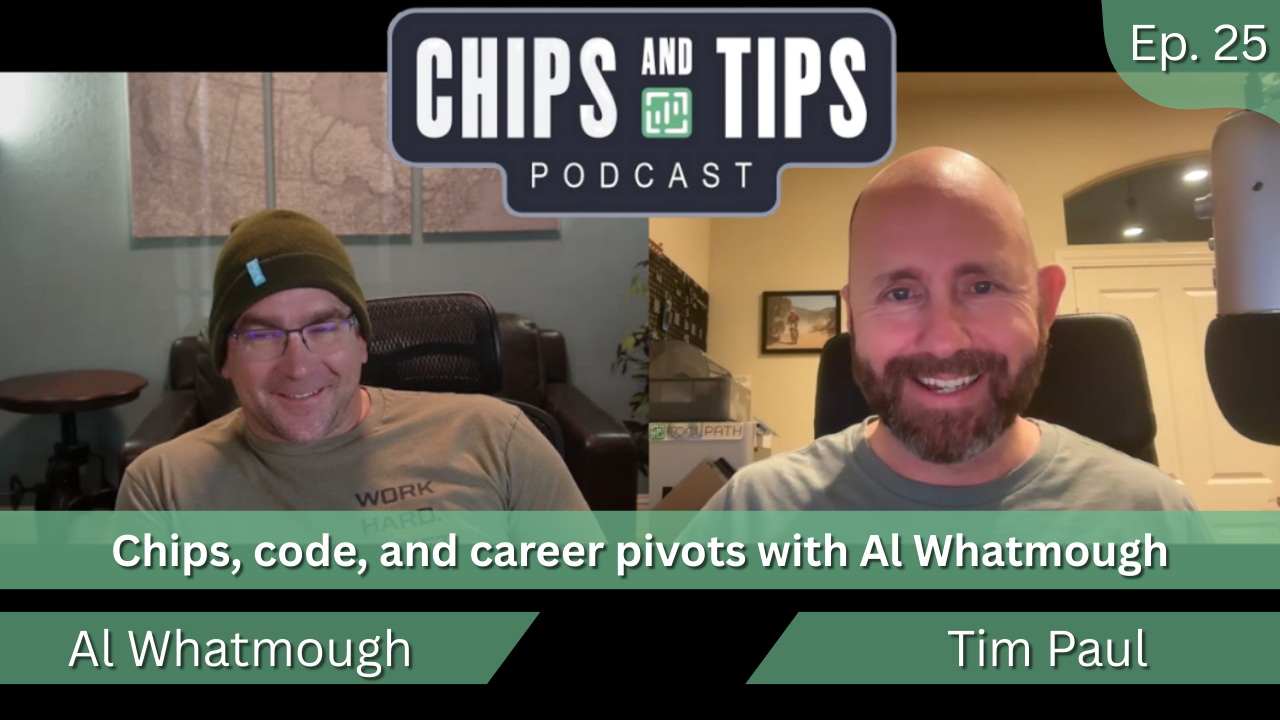%20(3000%20x%203000%20px).png)
When a mechanical engineer with NASA experience sets up a maker space in her apartment, you know something special is about to happen. In this episode of Chips & Tips, Justin sits down with Lauren Fahey—self-described “Professional Badass” and manufacturing engineer at a space startup—to talk about what it takes to bring serious precision into a small space. From hand-ground telescope mirrors to custom CNC music boxes, Lauren’s curiosity and persistence redefine what’s possible for engineers working at any scale.
Lauren Fahey’s story bridges the worlds of aerospace engineering and maker-level ingenuity. As a manufacturing engineer at a space startup in Long Beach, she spends her days reviewing tolerances that literally go to orbit—and her nights pushing the limits of a desktop CNC in her apartment. Her setup includes laser cutters, 3D printers, and a Carvera desktop mill, all tucked into a home workshop that proves you don’t need a big shop to make big things.
“I spent about 66 hours on that telescope mirror, just sitting there doing V and W strokes.” – Lauren Fahey, 00:10:45
Her path started in optics, working with Caltech’s Astronomical Research Group on scientific telescope instruments. That experience led her to grind her own six-inch telescope mirror by hand, a process that took 66 hours and sharpened her appreciation for the precision of both light and tooling. Today, that same patience fuels her small-scale machining projects, from enamel pins to one of her most ambitious builds: a fully functional CNC-milled music box with a custom-designed barrel.
“I cried many times. There was one morning I snapped a brand-new tap two threads in, and I just went back to bed.” – Lauren Fahey, 01:42:18
Lauren walks through her decision to buy the Carvera CNC, weighing options like the Haas Desktop Mill, Tormach, and Langmuir MR-1. The Carvera won her over with its automatic tool changer, enclosure, and quiet operation—essentials for an apartment-sized workspace. Though she admits the machine isn’t perfect (“I cried many times”), she praises its community support and capability, especially when paired with Fusion 360 for CAM and a fourth-axis attachment. Her music box project pushed both her skills and the machine’s limits, from simultaneous four-axis toolpaths to precision pin alignment using indexed drilling and epoxy bonding.
Beyond the technical challenges, Lauren emphasizes empathy between engineers and machinists. She knows the pain of over-tight tolerances and the importance of designing with manufacturability in mind. “You have to understand how things are made,” she says, “so you’re not just modeling something impossible.” That understanding carries into her belief that every engineer should get hands-on experience—she even jokes that seniors should have to machine freshmen’s designs as a rite of passage.
“You have to understand how things are made so you’re not just modeling something impossible.” – Lauren Fahey, 01:58:03
As the conversation turns to the future, Justin and Lauren imagine what a “CNC farm” could look like: a wall of small, automated mills producing parts with minimal oversight. For now, Lauren’s setup is more personal, but her drive to experiment and iterate embodies Toolpath’s core values—owning the challenge, honoring the profession, and innovating fearlessly. Whether it’s building a music box or machining parts for space, her work proves that precision is less about the size of your shop and more about the size of your curiosity.

